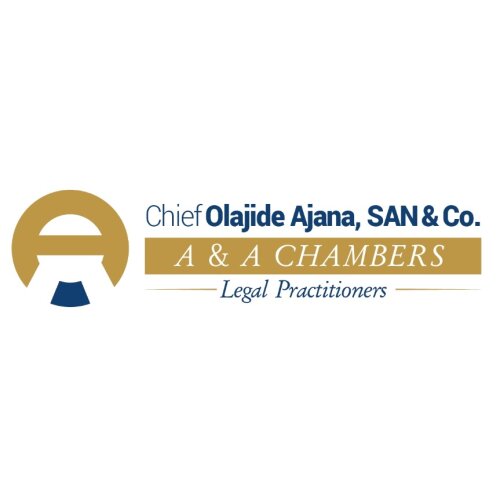Best International Trade Law Lawyers in Akure
Share your needs with us, get contacted by law firms.
Free. Takes 2 min.
List of the best lawyers in Akure, Nigeria
About International Trade Law in Akure, Nigeria
International Trade Law in Akure, Nigeria involves the regulations and agreements that govern the business transactions across national borders. This law helps facilitate fair and smooth trade between Nigeria and other countries, ensuring compliance with international standards. In Akure, a growing city with increasing economic activities, International Trade Law plays a crucial role in guiding companies and individuals in cross-border commerce. Local businesses and lawyers often engage with these laws to foster international business relations, handle disputes, and ensure compliance with the global trade framework.
Why You May Need a Lawyer
There are several common scenarios in which individuals or businesses may require legal assistance in International Trade Law in Akure:
- Contract Negotiation and Drafting: Engaging in international business transactions often requires detailed contracts to be negotiated and drafted, ensuring all parties are protected by law.
- Compliance with Regulations: Navigating the complex set of local and international trade regulations requires legal expertise to ensure compliance and avoid costly penalties.
- Dispute Resolution: International trade can lead to disputes requiring legal resolution, including arbitration or litigation.
- Tariffs and Trade Barriers: Understanding and managing tariffs or any trade barriers is essential for the smooth import and export of goods.
- Intellectual Property Protection: Ensuring intellectual property rights are protected during international transactions is vital for businesses.
Local Laws Overview
Key aspects of local laws in Akure, Nigeria, that are relevant to International Trade Law include:
- Export and Import Regulations: Laws governing the export and import of goods, ensuring that all traded goods pass through appropriate customs and adhere to national standards.
- Trade Agreements: Understanding bilateral or multilateral trade agreements that Nigeria is part of can impact trade terms significantly.
- Foreign Exchange Control: Regulations regarding the control and exchange of currency, which can affect international trade deals.
- Taxation Laws: Knowing the implications of VAT, customs duties, and other taxes is crucial for cost-effective trade dealings.
- Commercial Law and Contracts: The principles governing commercial dealings and contracts must be adhered to for legitimate international trade operations.
Frequently Asked Questions
What does International Trade Law cover?
It covers regulations, legal principles, and agreements that manage trade and commercial transactions across international boundaries, including contract law, tariffs, and import/export regulations.
Are there specific certifications needed for importing goods into Nigeria?
Yes, certain goods require certifications such as SONCAP (Standards Organisation of Nigeria Conformity Assessment Programme) to ensure they meet Nigerian standards.
How are trade disputes typically resolved?
Trade disputes are often resolved through arbitration or litigation, with a focus on reaching a settlement that is compliant with both domestic and international laws.
What is the role of tariffs in international trade?
Tariffs are taxes on imports that can affect the price and competitiveness of goods. They play a crucial role in trade policy decisions and economic strategy.
Is it necessary to have contracts translated in international trade?
Yes, contracts may need to be translated to ensure that all parties understand their obligations, particularly if they operate in different linguistic contexts.
What are common barriers to international trade?
Common barriers include tariffs, non-tariff barriers like quotas, legal restrictions, and currency controls.
Can I handle international trade issues without a lawyer?
While some issues can be managed independently, complex legal and regulatory requirements often necessitate the expertise of a lawyer to avoid potential pitfalls.
What is the impact of international trade agreements on local businesses?
Trade agreements can open new markets, reduce tariffs, and improve the overall business environment for local businesses engaging in international trade.
How can I protect my intellectual property during international trade?
Legal counsel can guide you through registering patents, trademarks, and copyrights in foreign jurisdictions to ensure protection across borders.
What are the legal consequences of non-compliance with trade laws?
Non-compliance can result in fines, trade sanctions, and damaged business relationships, which underline the importance of adhering strictly to trade regulations.
Additional Resources
For those seeking additional information or support, the following resources can be useful:
- Nigerian Export Promotion Council (NEPC): Offers guidance on export procedures and international market opportunities.
- Nigerian Customs Service: Provides essential information on customs regulations and import/export guidelines.
- Standards Organisation of Nigeria (SON): Responsible for the formulation and enforcement of product standards.
- Federal Inland Revenue Service: Offers insights into tax obligations for international trading entities.
- World Trade Organization (WTO): Provides frameworks and data on global trade practices affecting Nigeria.
Next Steps
If you require legal assistance in International Trade Law, consider the following steps:
- Consult a Lawyer: Seek the services of a qualified lawyer specializing in International Trade Law to get personalized guidance and assistance.
- Prepare Documentation: Gather all necessary documentation and records related to your trade activities for review by your legal advisor.
- Stay Updated: Keep abreast of changes in international trade laws and local regulations to ensure ongoing compliance.
- Engage with Trade Bodies: Join local and international trade bodies or chambers of commerce to gain insights and access to additional resources.
- Evaluate Risks: Work with your legal advisor to assess potential risks and develop strategies to mitigate them in your trade practices.
Lawzana helps you find the best lawyers and law firms in Akure through a curated and pre-screened list of qualified legal professionals. Our platform offers rankings and detailed profiles of attorneys and law firms, allowing you to compare based on practice areas, including International Trade Law, experience, and client feedback.
Each profile includes a description of the firm's areas of practice, client reviews, team members and partners, year of establishment, spoken languages, office locations, contact information, social media presence, and any published articles or resources. Most firms on our platform speak English and are experienced in both local and international legal matters.
Get a quote from top-rated law firms in Akure, Nigeria — quickly, securely, and without unnecessary hassle.
Disclaimer:
The information provided on this page is for general informational purposes only and does not constitute legal advice. While we strive to ensure the accuracy and relevance of the content, legal information may change over time, and interpretations of the law can vary. You should always consult with a qualified legal professional for advice specific to your situation.
We disclaim all liability for actions taken or not taken based on the content of this page. If you believe any information is incorrect or outdated, please contact us, and we will review and update it where appropriate.










